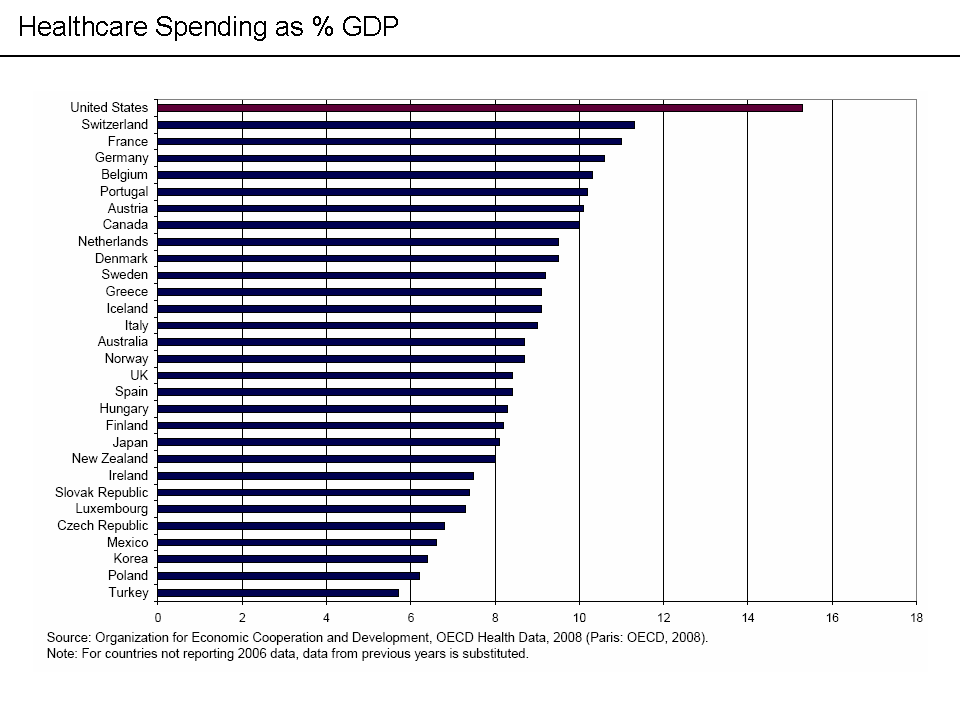Chronic VA Failures A Sign Of What's To Come For ACA?
http://www.ft.com/intl/cms/s/0/328546c0-dd10-11e3-8546-00144feabdc0.html#axzz31vysJUVM
"Amid contrived outrage over Benghazi and the improving fortunes of its healthcare reform, the Obama administration could be facing a genuine scandal about its treatment of military veterans that has the potential to attract broad political condemnation of its competence.
The Department of Veterans Affairs (VA) is facing mounting evidence that some of the hospitals it runs have been keeping two sets of books to make it look as if they were reducing waiting times to see a doctor.
More damning, the department is investigating the claims of a whistleblower doctor in Arizona that dozens of patients at one hospital died while they were languishing on a hidden waiting list without ever being given an appointment.
Richard Griffin, the department’s acting inspector general, admitted on Thursday that its review could lead to criminal charges. In the first political casualty of the scandal, Robert Petzel, the department’s undersecretary for heath, resigned on Friday.
If the evidence of mismanagement continues to accumulate, the Obama administration will find itself not in another partisan knife-fight, but under fire from both parties in a Congress where the uniformed military is venerated.
The veterans’ healthcare scandal is, in part, one of the unintended consequences of the wars in Afghanistan in Iraq, which have created “our 9/11 generation who have served with honour in more than a decade of war,” as President Barack Obama described them on Thursday.
More than 970,000 veterans from those wars have filed disability claims, taking the total enrolled in the VA system to 8.57m by the end of 2012.
At the same time, the healthcare system is dealing with the fact that many of the 6m veterans from the Vietnam era are now reaching the age when they start to require a lot of medical services. In 2010, the administration expanded coverage to exposure from Agent Orange, the chemical used during the war in Vietnam, prompting another surge of claimants.
The result has been a constant struggle to meet new demands, despite big spending increases. The budget for the VA has risen from $73.1bn in 2006 to $153.8bn this year. However, the number of outpatient visits at its facilities has increased from 46.5m in 2002 to 83.6m in 2012. “I am amazed this is still happening, given the big increase in resources that the department has received,” said Phillip Carter, a former army officer who researches veterans’ issues at the Center for a New American Security in Washington.
I am amazed this is still happening, given the big increase in resources that the department has received
- Phillip Carter, Center for a New American Security
The VA, which runs 152 hospitals and 817 outpatient clinics, has long suffered from delays and a dysfunctional bureaucracy. In 2010, it introduced a new appointments system which promised a 14-day wait for an appointment with a primary care doctor or a specialist.
While there have been reports for several years that the new waiting line system was being abused, the subject really began to gather steam three weeks ago when CNN interviewed Sam Foote, who had recently retired as a doctor after working for 24 years for VA hospitals in Phoenix, Arizona.
He said that as many as 40 patients had died after being placed on a hidden waiting list that could last for up to a year, while officials at the hospital shredded documents and faked evidence to make it seem as if waiting times were under control.
Three officials in Phoenix have been put on leave, although Mr Griffin said there was no evidence yet that patients had died because of delayed appointments.
Since then, whistleblowers have alleged similar practices at least seven other VA hospitals around the country and claimed that officials at the hospitals were sometimes paid bonuses for reducing declared waiting times.
The political impact of the scandal has been somewhat muted so far, in part because of the respect still enjoyed by the veterans affairs secretary, retired four-star general Eric Shinseki who was himself wounded twice in Vietnam. Appearing before a Senate hearing on Thursday, Mr Shinseki received pointed questioning, but in a tone more respectful than almost any other cabinet member would have encountered. “I am mad as hell,” he told the committee.
However, if Congress concludes that efforts to manipulate waiting lists have become systemic – or if the allegations that patients died while waiting for phantom appointments are proved – Mr Shinseki will face huge pressure from both parties to resign.
Richard Blumenthal, a Democratic senator for Connecticut, said there was “solid evidence of wrongdoing within the VA system”, while his colleague from Washington Patty Murray told Mr Shinseki: “The standard practice at the VA seems to be to hide the truth.”
In a sign of how serious the White House believes the political fallout could become, the president’s deputy chief of staff Rob Nabors has been dispatched to the VA to help manage the fallout."



